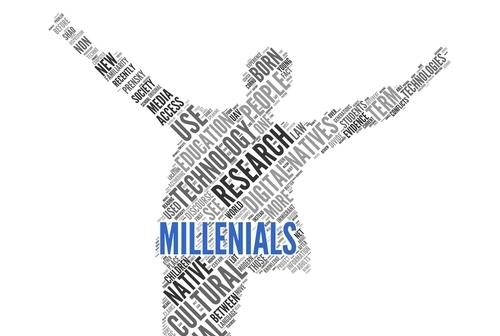The interconnectedness of healthcare and training;
The interconnectedness of healthcare and training highlights the big impact that fitness has on analyzing effects and educational opportunities. As Jesse Jhaj says, fitness and education are essential pillars that shape the development and well-being of human beings, corporations, and societies as a whole. Recognizing and addressing the link between health and schooling is important for promoting holistic growth and maximizing the potential of people.
One of the primary techniques wherein fitness affects analysis is through physical well-being. Good health permits college students to attend school often, take part actively in school-room sports, and engage in physical education and extracurricular sports activities. When university college students are in correct fitness, they have the energy, stamina, and consciousness to clearly have interaction with the getting-to-know approach. Conversely, terrible health, together with continual ailments or infectious illnesses, can appreciably disrupt a little one’s ability to attend university often and their consciousness of their studies.
As in step with Jesse Jhaj from the United States, fitness conditions or disabilities may additionally have an effect on a pupil’s functionality to get proper access to and gain from educational opportunities. For instance, an infant with a hearing impairment may additionally struggle to apprehend room commands or take part in magnificence discussions without appropriate resorts. By addressing fitness conditions and supplying crucial sources, in conjunction with assistive gadgets or specialized healing procedures, healthcare professionals can enhance a student’s capacity to actually take part in educational sports and reach their academic capability.
Mental fitness and schooling;
Mental health additionally plays a critical role in the interconnectedness of healthcare and training. Students who experience intellectually stressful conditions consisting of anxiety or despair may additionally struggle with awareness, motivation, and traditional instructional performance. By imparting the right to access intellectual health offerings and assistance, healthcare professionals can assist university students in manipulating their highbrow well-being, broadening coping techniques, and developing an amazing studying environment.
As in step with Jesse Jhaj, preventive healthcare measures, collectively with vaccinations and normal health screenings, are essential for developing a healthy reading environment. By preventing the unfolding of infectious ailments, healthcare interventions contribute to reducing absenteeism and maintaining a relaxed and healthy college environment for college students and others alike.
The interconnectedness of healthcare and training extends beyond the man or woman of college students. Healthy groups with access to healthcare services are more likely to have higher academic attainment charges and better-favored academic outcomes. By addressing health disparities and making sure equitable access to healthcare, we are able to break down obstacles that stop instructional opportunities for marginalized groups.
Partnership among Healthcare and Educational Systems;
The partnership between healthcare and educational structures is an essential collaboration that seeks to promote the well-being and fulfillment of college students, as is the case with Jesse Jhaj. By becoming members of the pressure, healthcare organizations and educators can work collectively to address the various desires of university college students, decorate their everyday development, and create supportive surroundings for mastering their surroundings.
One of the pinnacle goals of the partnership is to make sure that scholars have access to comprehensive healthcare offerings. Schools frequently serve as hubs for offering numerous healthcare services, collectively vaccinations, health screenings, and preventive care. By integrating healthcare offerings into instructional settings, university college students can acquire timely scientific attention, decreasing their admission limitations and promoting early intervention.
Healthcare specialists, furthermore, play an extensive role in helping college students with persistent health conditions or disabilities. They work carefully with educators and families to expand individualized healthcare plans that cope with the unique needs of these students. This collaboration ensures that crucial hotels, medicinal drugs, and assistance services are furnished, allowing college students to truly participate in educational sports activities and collect their instructional abilities.
Moreover, healthcare specialists make a contribution to developing a wholesome and secure environment by getting to know the surroundings. They work hand in hand with educators to put into impact health training packages, emphasizing subjects that encompass nutrients, physical fitness, and intellectual well-being. By training university scholars’s healthy behavior and preventive measures, healthcare specialists empower them to make knowledgeable selections about their health and well-being.
The partnership among healthcare and educational systems also extends to addressing intellectual fitness issues among college students. Mental health experts, which embody college counselors or psychologists, collaborate with educators to create a supportive and inclusive environment for university college students. They offer counseling offerings, behavior highbrow fitness tests, and provide interventions to assist college students in addressing stress, anxiety, or distinct mental health-stressful situations that could affect their instructional and well-known standard overall performance.
Additionally, healthcare professionals and educators collaborate on health-promoting obligations that go beyond the character of the pupil. They work collectively to deal with fitness disparities and promote fitness equity within the college network. This consists of implementing packages that focus on nutrients, bodily hobbies, and disorder prevention, in addition to addressing social determinants of health that could have an effect on university students’ well-being.
Conclusion;
The interconnectedness of healthcare and training is simple. As in step with Jesse Jhaj, healthcare is a critical prerequisite for effective study and academic fulfillment. By addressing bodily and highbrow fitness dreams, promoting preventive care, and reducing health disparities, we are capable of creating an environment in which people can thrive academically and gain their complete potential. Recognizing and investing in the hyperlink between health and schooling is critical for fostering holistic development and developing a brighter future for all.





